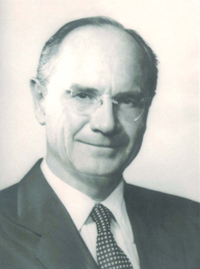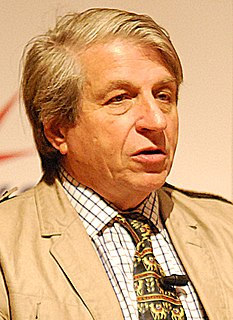A Quote by Wilma Mankiller
Though many non-Native Americans have learned very little about us, over time we have had to learn everything about them. We watch their films, read their literature, worship in their churches, and attend their schools. Every third-grade student in the United States is presented with the concept of Europeans discovering America as a "New World" with fertile soil, abundant gifts of nature, and glorious mountains and rivers. Only the most enlightened teachers will explain that this world certainly wasn't new to the millions of indigenous people who already lived here when Columbus arrived.
Quote Topics
About
Abundant
America
Arrived
Attend
Certainly
Churches
Columbus
Concept
Discovering
Enlightened
Europeans
Every
Everything
Explain
Fertile
Fertile Soil
Films
Gifts
Glorious
Grade
Had
Indigenous
Indigenous People
Learn
Learned
Literature
Little
Lived
Many
Millions
Most
Mountains
Native
Native America
Native American
Native Americans
Nature
New
New World
Only
Over
People
Presented
Read
Rivers
Schools
Soil
States
Student
Teachers
Them
Third
This World
Though
Time
United
United States
Us
Very
Watch
Will
World
Worship
Related Quotes
When Europeans arrived on this continent, they blew it with the Native Americans. They plowed over them, taking as much as they could of their land and valuables, and respecting almost nothing about the native cultures. They lost the wisdom of the indigenous peoples-wisdom about the land and connectedness to the great web of life...We have another chance with all these refugees. People come here penniless but not cultureless. They bring us gifts. We can synthesize the best of our traditions with the best of theirs. We can teach and learn from each other to produce a better America.
Whether we live by the seaside, or by the lakes and rivers, or on the prarie, it concerns us to attend to the nature of fishes, since they are not phenomena confined to certain localities only, but forms and phases of the life in nature universally dispersed. The countless shoals which annually coast the shores of Europe and America are not so interesting to the student of nature as the more fertile law itselffrom which it results that they may be found in water in so many places, in greater or lesser numbers.
Americans are good people. They have no aggressions against us and they like us as we like them. They must know I don't hate them. I love them.... I hear it is a complex society inside. Many Americans don't know about the outside world. The majority have no concern and no information about other people. They could not even find Africa on a map. I think Americans are good, but America will be taken over and destroyed from the inside by the Zionist lobby. The Americans do not see this. They are getting decadent. Zionists will use this to destroy them.
The mountains are fountains of men as well as of rivers, of glaciers, of fertile soil. The great poets, philosophers, prophets, able men whose thoughts and deeds have moved the world, have come down from the mountains - mountain dwellers who have grown strong there with the forest trees in Nature's workshops.
In fourteen hundred ninety-two Columbus sailed the ocean blue and discovered America. Now, some have argued Columbus actually discovered the West Indies, or that Norsemen had discovered America centuries earlier, or that you really can't get credit for discovering a land already populated by indigenous people with a developed civilization. Those people are communists. Columbus discovered America.
In grade school I was taught that the United States is a melting pot. People from all over the world come here for freedom and to pursue a better life. They arrive with next to nothing, work incredibly hard, learn a new language and new customs, and in a generation they become an integral part of our amazing nation.
In America there is really very little knowledge of the literature of the rest of the world. Of the literature of Latin America, yes, But that's not all that different in inspiration from that of America, or of Europe. One must go further. You don't even have to go too far in terms of geography - you can start with the Native Americans and listen to their poetry.
So, in "Melting Pot" the children (about a third of whom were kids of color) sang the line, "America was the new world and Europe was the old," in one stroke eradicating the narratives of indigenous persons for whom America was hardly new, and any nonwhite kids whose old worlds had been in Africa or Asia, not Europe.
The era I love most is the Federal period, just after the Revolution and the formation of the United States. The birth of America as a nation coincided with the Romantic era and I've always been thoroughly into the Romantics and I've always been thoroughly into America, particularly at the time when it was a brand new idea, when it was something brand new in the world. It was a very exciting time in the world because of the birth of America
9/11 was a signal that we were living in a new world - a world of interdependence, a world in which people could attack the United States not from the outside, but from the inside. It was a sign that the United States, the most powerful country in the world, could watch the cathedral of capitalism at the Trade Center and the heart of its defense at the Pentagon be struck internally, not really across borders, so that borders don't matter anymore.
The occupation of America (and Columbus's arrival quite clearly was an occupation, no one can deny that) meant that the entire history of the Native Americans was rendered invisible. The land could only be occupied if it was first defined as empty. So it was defined as a wilderness, even though it had been used by native people for millennia.
I have a rule now that I can only watch a movie twice. By the third time I was watching 'The Guest,' I was hating everything about it, but the first time, I loved it. The first time you watch it, you watch it as a whole. And the second time, I think you can learn a lot. By the third time, you are just picking everything apart.











































